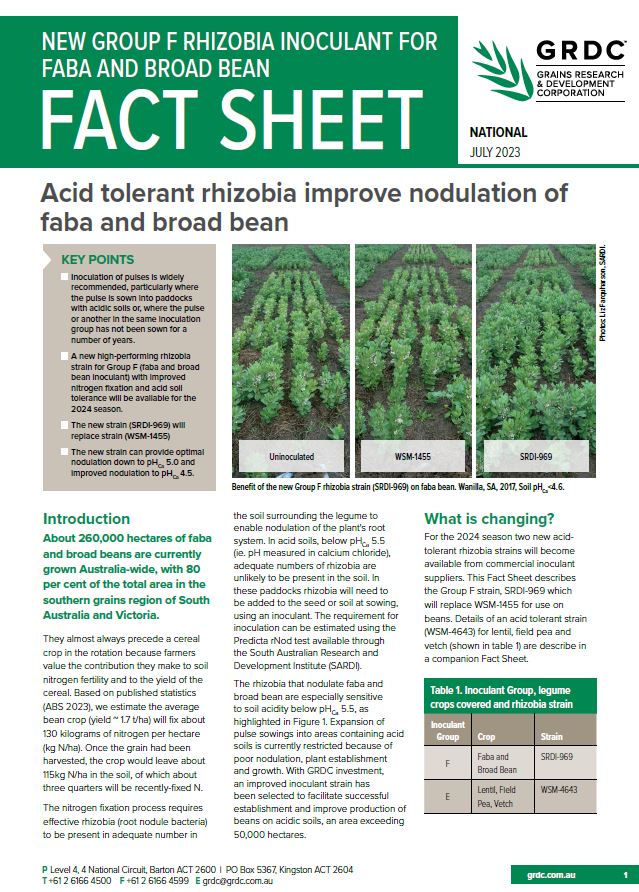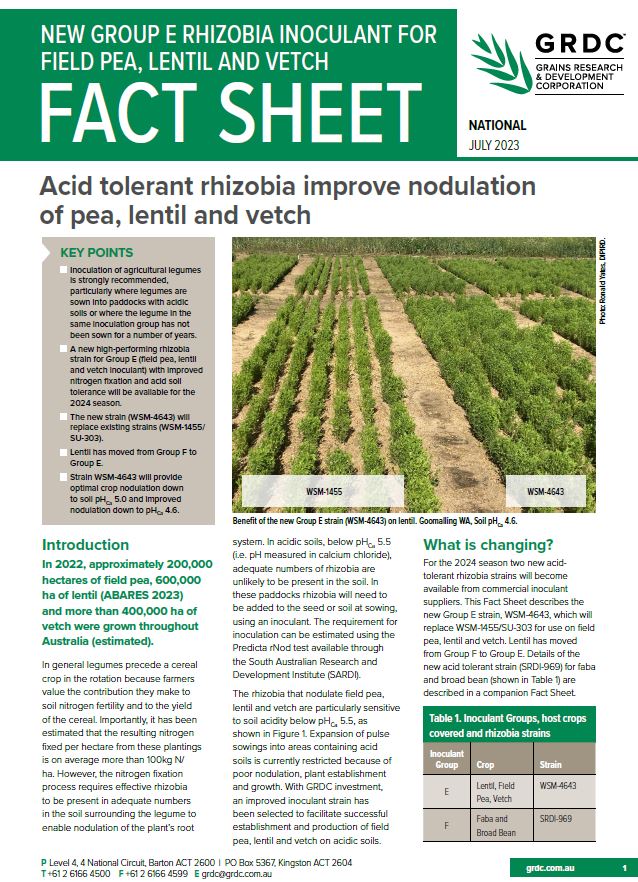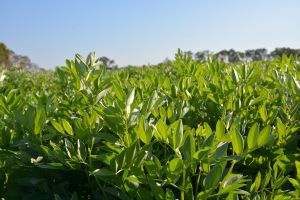Increasing the effectiveness of nitrogen fixation in pulse crops through development of improved rhizobial strains, inoculation and crop management practices
Investment
Increasing the effectiveness of nitrogen fixation in pulse crops through development of improved rhizobial strains, inoculation and crop management practices
- Project start date:
- 30/05/2018
- Project end date:
- 22/08/2023
- Crop type:
-
- All Pulses, (Legume)
- Organisation
- The University of Adelaide
- Region:
- North, South, West
- Project status
-
Completed
GRDC News
New boost for legumes in acid soils
11 Apr 2024
Two new, high-performing, commercial rhizobia inoculants have been commercialised after eight years of collaborative research...
Inoculation decisions made easy with new test
07 May 2021
A new test that measures rhizobia numbers in the soil will help take the guesswork...
Pulse nitrogen boost for acid soils
09 Jan 2021
A suite of improved rhizobia strains that are better adapted to acidic soils are being...
DNA research to improve inoculation decisions
05 Sep 2020
A South Australian project will save southern region grain growers time and money when it...
Update papers
- 05 Feb 2024, New acid tolerant rhizobium strains for inoculant groups E and F - GRDC
- 08 Feb 2022, An overview of research advances to optimise inoculation, nodulation and nitrogen fixation of pulse crops in southern Australia - GRDC
- 08 Feb 2021, New tool to predict the likelihood of an inoculation response to Group E and F rhizobia - GRDC
- 18 Feb 2019, Fixing more N – improving the performance of rhizobial inoculants in suboptimal conditions - GRDC
Resources

New Group F Rhizobia Inoculant for Faba and Broad Bean - GRDC
Acid tolerant rhizobia improve nodulation of faba and broad bean.

New Group E Rhizobia Inoculant for Field Pea, Lentil and Vetch - GRDC
Acid tolerant rhizobia improve nodulation of pea, lentil and vetch.
Inoculating legumes: The Back Pocket Guide - GRDC
A practical back pocket guide to inoculating legumes
Inoculating legumes: practice and science - GRDC
Atmospheric nitrogen (N) is fixed by symbiotic root-nodule bacteria (rhizobia) associated with pasture and pulse legumes and has a national value of about $3.5 billion annually.

Paddock Practices: Sowing legumes in acidic soils – the steps to success - GRDC
Grain growers intending to sow legume crops in acidic soils are advised to adopt a strategic approach to inoculation to optimise nodulation.
